- Home
- Brian Garfield
Marshal Jeremy Six #8 Page 5
Marshal Jeremy Six #8 Read online
Page 5
Six said, “Don’t tell me what to do, Jericho. I’ve had a belly full of that.”
“Sanderos told you to hop to his tune, hey?” Stride’s smile was crooked. He turned away, toward the battered table that served his office as a desk. “I sure miss the sound of that guitar.”
Six opened the door into the cantina. The bartender had come in; he was going around the empty room putting out lamps. When he reached the door and looked in, Stride spoke to him. The bartender nodded coolly, said, “ ’Noches, patron,” and left. Six rubbed his jaw. Jericho Stride said, “You can bed down out back in the shed. There’s a cot against the back wall.”
“Thanks.”
“De nada. What do you plan to do?”
“About Steve Lament?”
“Yes.”
“Go after him,” Six said. “That’s what I came for.” He turned and laid his heavy glance against Stride. “But first I owe it to you to give you a warning. If I go after Lament, I’m mixing you and Holly in it up to your necks.”
Stride scowled at him. “How?”
Six passed a hand over his eyes; he was dead tired. He said, “Sit down, I’ll tell you the whole thing. You need to know – you’ll want to make your own plans.”
While Six spoke, Jericho Stride sat back and withdrew the revolver from his holster. Methodically, listening without interruption, he thumbed open the six-gun gate and dropped the five cartridges one by one into his palm. They had turned green from a leather mold that had discolored them - sign they had been carried a long time in a shellbelt’s loops. Jericho grunted once or twice as Six spoke, and rubbed the cartridges with the ball of his thumb until each brass shellcase shone. Out front there was a little noise – a few customers left in the cantina. A hoarse voice bawled, “Buenos noches, señores.” Huaraches scuffed across the cantina floor. Through it all, Six’s voice droned on. Stride took a box of cartridges out of a carton under the table. His eyes were hooded. He put the five cartridges back into the revolver and took a sixth from the box, and loaded that into the empty chamber. Then he worked the weapon’s action, rhythmically cocking and uncocking it.
Finally he put the gun away in his holster. For an extended interval he sat still. Once he flicked imaginary moisture from his mouth corners with thumb and forefinger. His expression slowly clouded, bespeaking a faraway regret.
Six was still talking when Holly Moore came in through the outer door. Six started: for a moment he had thought she was: She’s dead. Get it through your head. Holly said snappishly, “Hell of a lot of noise around here tonight. Can’t a body get any sleep?” She was dressed in a quilted robe; her eyes were puffed with sleep.
She said, “Your window’s open.”
Jericho said, “You been listening?”
“I couldn’t help it, darlin’.” She wasn’t smiling. She walked over to Stride and took a long cigar out of the pocket of his vest; she bit off the end expertly, spat it out, and bent over the chimney of the lamp to light it. She coughed and took it out of her mouth. “I never could stand these things.”
Stride took it out of her hand and poked it in his mouth. Holly had turned a baleful glance on Six. “You’ve got us in a hell of a mess.”
“Yes.”
“Why don’t you just turn around and go home, Marshal?”
“I can’t.”
“Men are stubborn fools. You can’t bring her back, not by going after that man, Lament.”
Jericho said mildly, “If he didn’t go after Lament he wouldn’t have much of himself left, Holly.”
Six lifted his eyebrows; it was the first indication he had had of Stride’s reaction.
Holly went to the window and folded her arms under her breasts; she looked cold, though it was a stifling warm night. She said absently, “I came through Puerto Naco yesterday. There was a boat in the harbor, a steam packet, leaving Friday for Buenos Aires.” She turned around and stared at Stride. “We can both get on it.” Stride made no immediate answer. Holly said, “You need a shave.”
“What do you want out of me? I changed my God damn shirt.”
“So you did.”
Jericho Stride said, “I’m not running anyplace.”
“You’re what?” She flung an arm out toward Six. “Didn’t you hear what your friend’s been telling you? You know what our lives are worth if we stay here now?”
“I know,” Stride said, and shrugged. “I guess I keep thinking about old Juano.” He turned his smoldering glance against Six. “But one thing’s sure, we can’t stay here.”
Stride ground the cigar out under his foot. “Jeremy will do what he’s got to do.”
Holly said, “That’s fine. That’s just fine and dandy. But what about this?”
Stride looked at Six. “You’re dead on your feet. Go on out and bed down.”
“I will,” Six said, without apology. He needed sleep; he also needed time alone, to think things out.
Holly, with an icy expression of scorn, reached over to the table and picked up a dog-eared dime novel with crumpled paper covers, and tossed it in Stride’s lap. “Here. You might take up reading, all about how Buffalo Bill shot down Yellow Hand with a rifle at a range of one mile. You haven’t got anything better to do.” The dime novel fell on the floor, crumpling pages. Stride picked it up, flattened it out, put it back on the desk and got up. He said, “I miss the sound of that guitar.”
Six, at the door, said, “Jericho—”
“Never mind, Jeremy. No apologies, all right? You don’t owe me a damn thing.”
“Take care of yourselves,” Six muttered, and went out.
Seven
Dawn: Jericho crossed the office and leaned over the narrow cot to take down a pair of worn leather saddlebags from a wall peg. He packed them tight.
A .44-40 rifle stood in the corner. He checked it for dust and load, and laid it across the cot beside the saddlebags. He went to the door. When his hand gripped the edge of the jamb the knuckles stood out, corded. He went onto the stoop behind the office and looked around the place as if to memorize it. The empty yard was littered with discarded junk – a weathered wagon-wheel, its iron tire buckled; a battered whale-oil lamp; odd wooden blocks, splintered and dry. Weeds grew profusely and a great ball of tumbleweed rested wearily against the wall under the stairs. A cloud scudded with stately speed across the red eastern sky.
Jeremy Six came out of the shed lugging his blanket roll. Jericho Stride said, “You don’t leave a man much.” Six just looked at him. “I don’t want any company, Jericho.”
“Why? Because I might pick sides with Lament when the time comes?”
“That’s right.”
“You might be right, after this. I had a pretty good little business here.”
“Take your title papers with you and sell it somewhere down the line. You’ll be all right.”
“Sure. Only a man gets tired of being hounded from place to place by law badges like yours. And I was getting to like it here.”
“I’m sorry, Jericho.”
“I know,” Stride said. “If I was you, I’d start down in Madera Canyon. Take the main road south about ten miles and turn up toward the foothills when you come to a mine road. You can’t miss it, the ruts are good and deep from all those ore wagons. You’ll go about six, seven miles and come to a big red rock spire. Turn to your left and head up the canyon. Just keep going, heading for the high country. Likely they’ll pick you up sometime in the next day or two.”
“All right. Thanks.”
“And one more thing - don’t light any foes and don’t make any sudden motions.” Stride smiled briefly. “But I guess you know all that. All right, Jeremy. Maybe I’ll be seeing you sometime.”
“Maybe you will,” Jeremy Six said, and went.
Beyond the outside staircase that led up to the attic was a wooden enclosure the size of an outhouse. A ladder led up to the top of it, where an intricate lacework of pipes and buckets stood against the sky. One of the buckets had its bottom sieved w
ith small holes. The rusty handle of a pump stood out. Stride went up the ladder and worked the pump until the wooden tank was full; he climbed down and stepped out of his clothes and entered the enclosure. A little light filtered down past the pipes and buckets above. He gripped a rope-pull to dump water through the sieved bucket and soak his naked body. He lathered with a bar of strong soap and dumped several more bucketfulls of water over himself, stepped out into the yard and stood dripping, taking pleasure in the cool sensation as the water evaporated from his skin. When he started to chill he took down a wrinkled towel from a peg.
Hard laughter bubbled down from above. He looked up. At the head of the outside staircase stood Holly Moore. She said, “My God, what an ugly sight to wake to.”
She came down the stairs holding up her skirts. Without fuss Stride wrapped the towel around his midriff and padded forward barefoot. He said, “You don’t look so daisy-fresh yourself.”
“Kiss yourself,” she said, and grinned. “Nobody else would. Did I ever tell you how damn ugly you are?”
“I think maybe you mentioned it a time or two.”
“I hope to God you put clean clothes on.”
“I had it in mind,” he said. He went inside and stuffed himself into drawers and pants, buckled his gun-belt around him, and found his last clean shirt. Holly put her back against the door and said:
“I’m all packed.”
“I’ve got to see Rodrigo first,” he said. “Sit tight.”
Rafael Sagan sat again in the chair stained with his own blood; again he felt the tight wire binding his wrists and ankles. His face, young and smooth just a few days ago, was puffed and scratched with welts. His back was laced with the tracks of Sergeant Mendez’s whip. His belly and groin throbbed from the steady beating of Mendez’s sharp fists. His shoulders were blue where the butt of the whip had beaten them. His shins showed the marks of boot toes. His clothes hung in ragged strips, glued to his body by scabs of half-dried blood.
His expression was a study in abstracted composure.
Mendez slapped his quirt against his palm, standing in front of him. “You have had the night to think and to heal your wounds, chico. Perhaps now you feel more inclined to speak?”
Sagan said nothing. Mendez smiled wickedly. On the desk were the remains of the breakfast the sergeant had eaten, forcing Sagan to watch: corn tortillas garnished with red chili peppers, brown frijoles, coffee. Sagan had not eaten anything in days. He closed his eyes and felt agony sing through him.
The door opened. Captain Rodrigo Medina looked in. “Sergeant.”
“Yes, Captain?”
Medina jerked his head and backed out the door. The cocky little sergeant gave Sagan a cruel glance and left the room, leaving the door ajar. Sagan let his lacerated body hang loose in his lashings. He fought the impulse to moan. Footsteps scraped outside and presently he heard the impatient rasping voice of the lean hawk-faced colonel: “Well, Mendez?”
“He is stubborn,” Sergeant Mendez said, half in apology. “You know these mountain people, Excellency—”
Sanderos made some reply; Sagan, fighting back a wave of pain, did not catch it. Bootheels struck the floor, a man pacing; the colonel’s voice came through again and Sagan listened to it with full concentration.
It gave him something to fix his mind on besides his agony.
Sanderos was saying, “It seems certain the gringo marshal is traveling toward the Sierra. Otherwise why did he not go north toward the border?”
“Perhaps he intends to cooperate with us.” That was Captain Rodrigo Medina’s voice. The back of the chair stung Sagan’s cut flesh. He tried to pull away but the pressure only increased the throbbing pain in his belly. His half-shut eyes were damp; his mouth was tight under pressure. Outside he heard the pacing footsteps halt and the colonel speak again:
“I gave fair warning. Captain, you will place Six’s friend under arrest – the saloonkeeper Stride. And the woman with him. It must be done publicly, with many witnesses, so that the rebels will learn of it quickly. The news that we have taken his friends may discourage Marshal Six from displaying any unfortunate initiative. Second, Captain, you will post patrols at strategic points around the northern end of the Sierra to intercept Six if he tries to break out with his prisoner. They will be instructed to bring Six back to me.”
“Alive?” That was Sergeant Mendez’s voice.
“By all means alive. He cannot talk if he is not alive, Sergeant.”
“Of course. But he might resist arrest, Excellency.”
“In which case he might suffer injuries,” Sanderos replied. “But he must be brought to me alive and conscious.”
“Yes, Excellency.”
“Captain?”
“I understand,” Captain Medina said with cool formality. “That is all, Colonel?”
“Yes. Go now and arrest the two Yanquis. Meanwhile, Mendez, you will have one further chance to persuade our young guest to talk. If you fail, you must leave him in my hands.”
Mendez’s reply was not audible. Boots banged stiffly across a floor, a door slammed, and Mendez appeared scowling before Sagan. “It is time you sang, little bird,” Mendez said, and minced forward, lifting the strained quirt. Watching it come, Sagan tried to ride with it, but it lashed his shredded face. Tears blinded him. Mendez kept cursing softly – he did not hear the footsteps behind him, did not sense the lift of the heavy revolver, did not feel the barrel descend along the side of his head like a club.
Sergeant Mendez went limp. Strong arms caught his falling body and lowered it gently to the floor.
Captain Rodrigo Medina holstered his revolver and bent down quickly to twist away the wires that bound Sagan. Medina’s voice was a murmur: “One day perhaps you will forgive me for not having done this sooner. I had to wait until now.”
The surge of life, the renewal of hope, almost swept Sagan’s pain from him; he was able to smile – though he had no idea what that action did to his mutilated face. “My life is yours, Capitan.”
Medina went to the door, peered out cautiously, came back and bent down to drag Sagan’s arm across his shoulders. When Medina stood up he was supporting most of Sagan’s weight; still, blood rushed from the youth’s brain and he felt dizzy; he tightened his muscles against the faintness and said, “I can walk alone.”
A great sadness lengthened the captain’s handsome face. “You ought to be in a hospital, niño, but I can’t take you there.”
Sagan was only half aware of the journey that followed. Medina half-carried him out the side door of the building, down into the stables. A wagon stood there, hitched and waiting, its bed two feet deep in loose straw. The captain’s strong muscles tensed and Sagan found himself lifted into the wagon, settled among blankets. Medina laid straw over him. “Keep still and don’t disturb the straw. No one can see you.”
“Captain—”
“You can talk later,” Sagan heard the captain’s boots stride crisply away. Silence filled the stable, disturbed by the occasional swish of a horse’s tail and kick of a hoof against a belly-fly. A steady ache pulsed through Sagan, dulling his senses; he felt himself drifting away from awareness …
A hand shook him gently and he came awake smelling food. The warm spice of thick meaty tacos. Captain Medina spoke softly: “Eat.”
Trembling, Sagan swept the straw aside and began to eat. “Keep your head down,” the captain advised. The wagon dipped and swayed under the captain’s weight. Sagan relished the food but ate quickly. The captain spread straw over him and then there was the snap of the brake being released, the soft cluck of the captain’s tongue, the gentle slap of reins, and the break and surge as the wagon lurched into motion and swung out of the stable, bumping the wagon-bed, jarring Sagan with waves of pain. He endured them because he knew that each moment of pain took him farther from the barracks, closer to freedom. Then the wagon stopped; Captain Medina spoke in a murmur and got off the wagon. Through the lacing of straw Sagan could see the deep far blue of
the sky. He had despaired of ever seeing it again.
The wagon seemed to be drawn up beside a building. One or two people came outside and he could hear them talking in a foreign tongue. One voice was Medina’s. Medina’s head appeared against the sky and Sagan watched his face; the captain said, “You are badly hurt, chico, but I rely on you to guide this man into the mountains. His name is Stride and he is our friend.” To the man called Stride, Captain Medina said, “I’ll tell Sanderos you’d already escaped when I arrived to arrest you.”
“You do that, Rodrigo.”
“Go now, amigos.”
A woman’s voice said, “I still say it’s too damned sudden.”
“Go on,” said Medina.
The wagon creaked, swayed under a man’s weight. Looking up, Sagan could see him now: high-boned, tall, black-skinned. Stride looked down and made as if to smile. A woman with dark reddish hair got up on the seat beside Stride. Captain Medina reached over the side of the wagon and gripped Sagan’s shoulder. “Guide them well, Rafael.”
“Míl gracias, Capitan.”
The wagon broke away. Something bucked uncomfortably against his hip. He reached down and found it was a canteen; he uncorked it and drank. The cool water slid down his throat like a healing ointment. The wagon rocked and jerked under him, pummeling his body, and after a long time the black-skinned man craned around and said, “We’re out of town now. You can sit up if you feel like it.”
He pushed himself up, clinging to the side with one hand. Falling away quite far behind them he saw the town and the river. On either side the arid hills rolled by. Ahead of them lifted the foothills. “Santana is far to the south,” Rafael said.

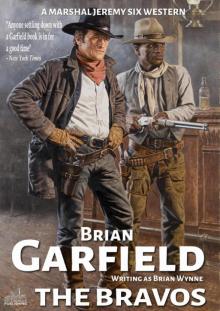 Marshal Jeremy Six #3
Marshal Jeremy Six #3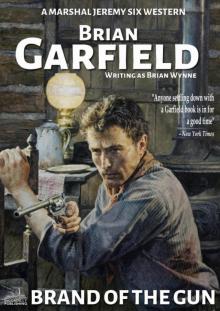 Marshal Jeremy Six #6
Marshal Jeremy Six #6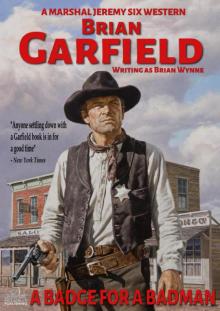 Marshal Jeremy Six #5
Marshal Jeremy Six #5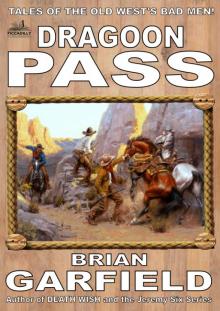 The Outlaws 2
The Outlaws 2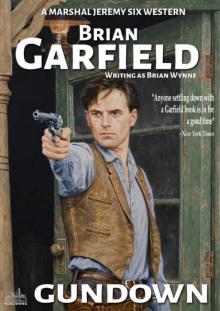 Marshal Jeremy Six #7
Marshal Jeremy Six #7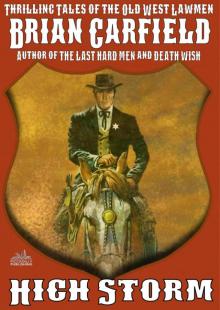 The Lawbringers 4
The Lawbringers 4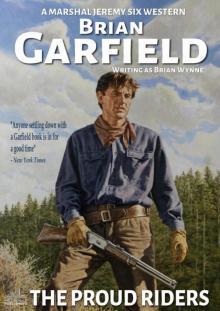 Marshal Jeremy Six #4 the Proud Riders
Marshal Jeremy Six #4 the Proud Riders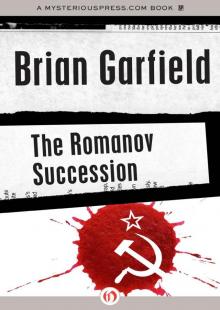 The Romanov succession
The Romanov succession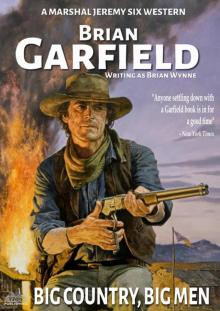 Marshal Jeremy Six #8
Marshal Jeremy Six #8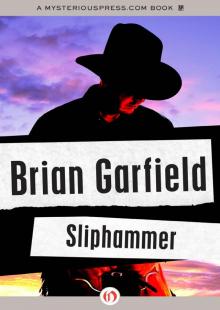 Sliphammer
Sliphammer Line of Succession
Line of Succession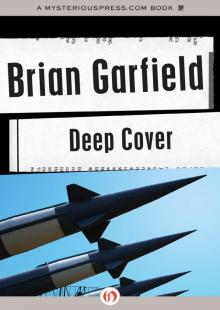 Deep Cover
Deep Cover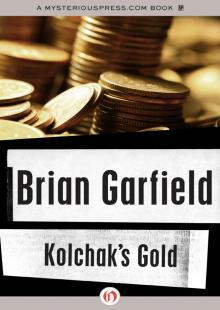 Kolchak's Gold
Kolchak's Gold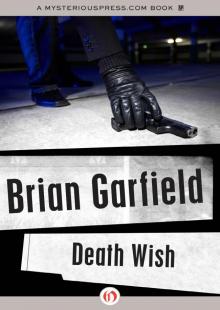 Death Wish
Death Wish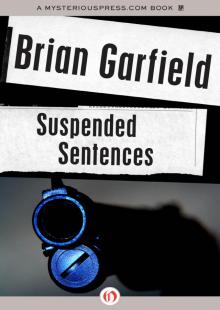 Suspended Sentences
Suspended Sentences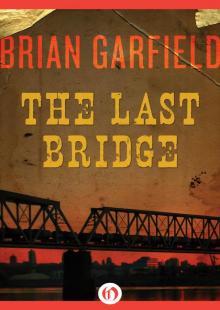 The Last Bridge
The Last Bridge Relentless
Relentless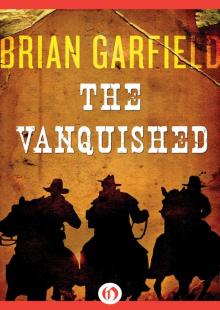 The Vanquished
The Vanquished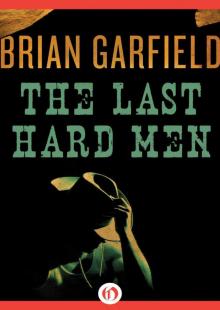 The Last Hard Men
The Last Hard Men Hit and The Marksman
Hit and The Marksman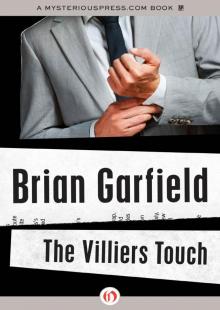 Villiers Touch
Villiers Touch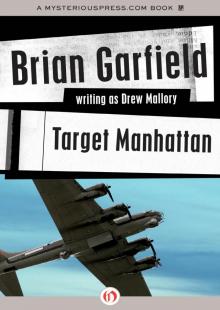 Target Manhattan
Target Manhattan Marchand Woman
Marchand Woman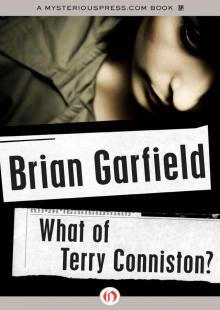 What of Terry Conniston?
What of Terry Conniston?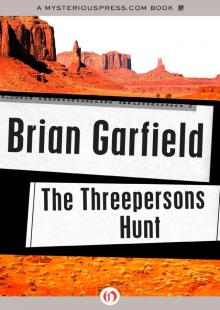 Threepersons Hunt
Threepersons Hunt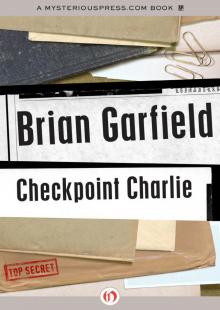 Checkpoint Charlie
Checkpoint Charlie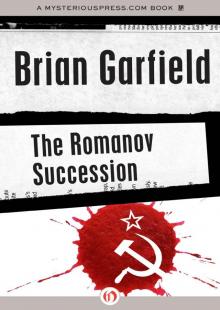 Romanov Succession
Romanov Succession Necessity
Necessity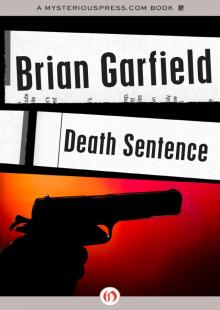 Death Sentence
Death Sentence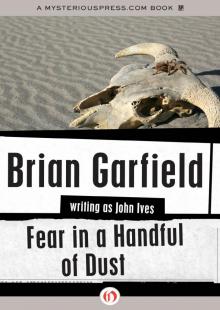 Fear in a Handful of Dust
Fear in a Handful of Dust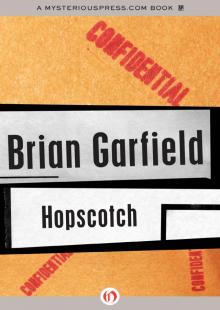 Hopscotch
Hopscotch